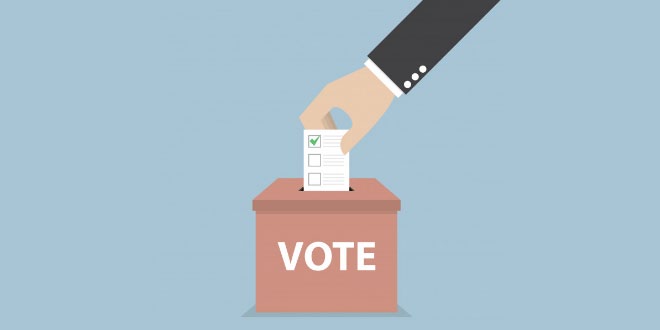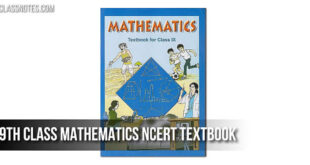Question: What is meant by rigging?
Answer: Fraud and malpractices indulged by a party or candidate to increase its votes, in an election is called rigging.
- Using the votes of others
- Recording multiple votes by the same person
- Bribing polling officers to favor a candidate are considered as rigging during elections
Question: What is our system of Election?
Elections in India:
Lok Sabha and Vidhan Sabha (Assembly) elections are held regularly after every five years. After five years the term of all the elected representatives comes to an end. The Lok Sabha or Vidhan Sabha stands ‘dissolved’. Elections are held in all constituencies at the same time, either on the same day or within a few days. This is called a general election. Sometimes election is held only for one constituency to fill the vacancy caused by death or resignation of a member. This is called a by-election.
Electoral constituencies:
For Lok sabha elections, the country is divided into 543 constituencies. The representative elected from each constituency is called a member of parliament or an MP. One of the feature of democratic election is that every vote should have equal value. That is why our constitution requires that each constituency should have a roughly equal population living within it.
Similarly, each state is divided into a specific number of assembly constituencies. In this case, the elected representative is called the member of legislative assembly or an MLA. Each parliamentary constituency has within it several assemblies constituencies. The same principle applies for Panchayat and municipal elections. Each village or town is divided into several ‘wards’ that are like constituencies. Each ward elects one member of the village or the urban local body. Sometimes, these constituencies are counted as ‘seats’, for each constituency represents one seat in the assembly.
Reserved Constituencies:
Our constitution entitles very citizen to elect its representative and to be elected as a representative. The constituent makers, however, were worried that in an open electoral competition, certain weaker sections may not stand a good chance to get elected to the Lok sabha and the state legislative assemblies. They may not have the requires resources, education and contacts to contest and win elections against others. Those who are influential and resourceful may prevent them from winning elections. If that happens, our parliament and assemblies would be deprived of the voice of a significant section of our population. That would make our democracy less representative and less democratic.
So, the makers of our constitution thought of a special system of reserved constituencies for the weaker sections. Some constituencies are reserved for the people who belong to scheduled caste and scheduled tribes. This system of reservation was extended later to the other weaker sections at the district and local level. In many states, seats in rural and urban local bodies are now reserved for other backward classes as well. However, the proportion of seats reserved varies from state to state. Similarly, one-third of the seats are reserved in rural and urban local bodies for women candidates.
Currently, in the Lok Sabha, 79 seats are reserved for the Scheduled Castes and 41 for the Scheduled Tribes. This number is in proportion to their share in the total population.
Voter’s List:
- Once the constituencies are decided, the next step is to decide who can and who cannot vote. This decision cannot be left to anyone till the last day. In a democratic election, the list of those who are eligible to vote is prepared much before the election and given to everyone. This list is officially called the electoral roll and is commonly know as the voter’s list.
- This is an imp step for it is linked to the first condition of a democratic election. Universal adult franchise means that everyone should have one vote and each vote should have one value.
- In our country, all the citizens aged 18 years and above can vote in an election. Every citizen has right to vote in an election.
- Some criminal sand persons with unsound mind can be denied the right to vote, but only in rare situations.
- In the last few years a new system of Election Photo Identity Card (EPIC) has been introduced. The government has tried to give this card to every person on the voters list.
Nomination of Candidates:
Anyone who can be a vote can also become a candidate in elections. The only difference is that in order to be a candidate the minimum age is 25 years, while it is being only 18 years for being a voter. Every person who wishes to contest an election has to fill a ‘nomination form’ and give some money as ‘security deposit’. Recently, a new system of declaration has been introduced on direction from the supreme court. Every candidate has to make a legal declaration, giving full details of:
- Serious criminal cases pending against the candidate.
- Details of the assets and liabilities of the candidate and his / her family.
- Education qualifications of the candidate.
- Educational qualifications are not relevant to all kinds of jobs. The relevant qualification for being an MLA or an MP is the ability to understand people’s concerns, problems and to represent their interests.
- Even if education was relevant, it should be left to the people to decide how much importance they give to educational qualifications.
- In our country putting an educational qualification would go against the spirit of democracy for yet another reason. It would mean depriving a majority of the country’s citizens the right to contest elections (with poor literacy rate).
Election Campaign:
The main purpose of election is to give people a chance to choose the representatives, the government and the policies they prefer. Therefore it is necessary to have a free and open discussion about who is better government or what is a good policy. This is what happens during election campaign.
In our country such campaigns take place for a two-week period between the announcement of the final list of candidates and date of polling. During this period the candidates contact their voters, political leaders address election meetings and political parties mobilize their supporters. This is also the period when newspapers and television news are full of election related stories and debates. But election campaign is not limited to these two weeks only. Political parties start preparing for elections months before they actually take place.
some of the successful slogans given by different political parties in various elections.
The Congress party led by Indira Gandhi gave the slogan of Garibi Hatao (Remove poverty) in the Lok Sabha elections of 1971.
Save Democracy was the slogan given by Janta Party in the next Lok Sabha election held in 1977. The party promised to undo the excesses committed during Emergency and restore civil liberties.
The Left Front used the slogan of Land to the Tiller in the West Bengal Assembly elections held in 1977.
Protect the Self-Respect of the Telugus’ was the slogan used by N. T. Rama Rao, the leader of the Telugu Desam Party in Andhra Pradesh Assembly elections in 1983.
Model Code of Conduct for election campaigns
- According to our election law, no party or candidate can bribe or threaten voters.
- According to our election law, no party or candidate can appeal to them in the name of caste or religion.
- According to our election law, no party or candidate can use government resources for election campaign; and
- According to our election law, no party or candidate can spend more than Rs. 25 lakh in a constituency for a Lok Sabha election or Rs. 10 lakh in a constituency in an Assembly election.
- According to this no party or candidate can use any place of worship for election propaganda.
- According to our election law, no party or candidate use government vehicles, air crafts and officials for elections; and
- Once elections are announced,Ministers shall not lay foundation stones of any projects, take any big policy decisions or make any promises of providing public facilities.
Polling and counting of votes:
The final stage of an election is the day when the voters cast or ‘poll’ their vote. That day is usually called the election day. Every person whose name is on the voters’ list can go to a nearby ‘polling booth’, and cast vote. Now a days electronic voting machines (EVM) are used to record votes. The machine shows the names of the candidates and the party symbols. A few days later, on a fixed date, all the EVMs from a constituency are opened and the votes secured by each candidate are counted. The candidate who secures the highest number of votes from a constituency is declared elected.
 Class Notes NCERT Solutions for CBSE Students
Class Notes NCERT Solutions for CBSE Students



